Erica Vetsch's Blog, page 10
February 21, 2023
This Writing Lake - a Motivational Post
Originally, I'd planned this post for January, but I got carried away with my reading, and wanted to reflect on it more. But maybe February is better anyway. By now resolutions have worn thin, if not fizzled out altogether. Maybe now is a good time to reflect on who we are, what we do, and why we do it?

I've known Madeline L'Engle's work since my children were young and we read A Wrinkle in Time. I confess, I always associated her with those books, and I never thought much more about her work. That changed last November. I was attending a Zoom workshop, and the presenter mentioned a quote that intrigued me. He couldn't remember the source of it. One of the beauties of Zoom workshops though is that you're already at the computer and Google is right at hand. A quick search resulted in Madeline L'Engle as the source.Close, but no banana.*A closer reading revealed it was Madeline L'Engle quoting Jean Rhys.I'll come to the quote in a moment, but first I want to share the book that my Googling produced - Walking on Water: Reflections on Faith and Art by Madeline L'Engle
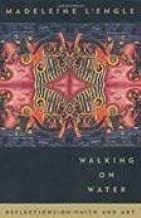 This is the blurb from Amazon:
This is the blurb from Amazon: In this classic book, Madeleine L'Engle addresses the questions, What makes art Christian? What does it mean to be a Christian artist? What is the relationship between faith and art? Through L'Engle's beautiful and insightful essay, readers will find themselves called to what the author views as the prime tasks of an artist: to listen, to remain aware, and to respond to creation through one's own art. I found it an interesting read. It made me think of my art in ways I don't usually - particularly as service.
This is the quote:
“If the work comes to the artist and says, 'Here I am, serve me,' then the job of the artist, great or small, is to serve. The amount of the artist's talent is not what it is about. Jean Rhys said to an interviewer in the Paris Review, 'Listen to me. All of writing is a huge lake. There are great rivers that feed the lake, like Tolstoy and Dostoyevsky. And there are mere trickles, like Jean Rhys. All that matters is feeding the lake. I don't matter. The lake matters. You must keep feeding the lake'.”There are multiple ways to interpret that quote. My takeaway, I suspect, was not what Ms. L'Engle intended, so I'll save that for the end.That passage is followed by this: "To feed the lake is to serve, to be a servant."
Sometimes we talk about writing for God, our audience of One. But I wonder, as you are sitting at your keyboard, are you thinking of your work as service? Should you be? Who or what are you serving. Just some questions to ponder.
I particularly liked what I discovered following that "lake" quote. It referred to the discipline necessarily inherent in out service And one of the things I have learned is the importance of discipline in my writing. How many times have we been told that if we want to be writers, we must take our calling seriously, we must work diligently?Ms. L'Engle addressed that necessary discipline with this quote:
"Someone wrote, 'The principal part of faith is patience,' and this applies, too, to art of all disciplines. We must work every day, whether we feel like it or not, otherwise when it comes time to go out of the way and listen to work, we will not be able to heed it."

I would like to offer another interpretation, probably not the intended one, but one that resonated with me. When these words were quoted in the workshop, they were completely out of context:
All of writing is a huge lake. There are great rivers that feed the lake, like Tolstoy and Dostoyevsky. And there are mere trickles, like Jean Rhys. All that matters is feeding the lake. I don't matter. The lake matters. You must keep feeding the lake'.”

The sections in bold were what captured me - that sense of community, of being a part of something so much bigger than my small self. They made me feel, in some ineffable way, to be part of a grander existence, a community of writers, all feeding the lake of story. It was only in researching the original context of the quote, and reading from the book, that I learned so much more about that creation as service to which Ms. L'Engle referred.
But maybe we can have it as both - because partners in service allows us to be more productive, more attentive, and the results just might amaze us.
So, when your discipline is flagging, when your words are halting rather than flowing, when you're feeling more like a trickle than a great river, try thinking of yourself as part of that larger community of creatives, a servant sharing an important message, apart of a lake that allows all to float.
And find the faith to keep trying.
Photos from Pixabay
February 19, 2023
The Lingo of Storytelling - reprise edition

Good morning, Seekerville!
Last month I brought you a post about writing in "Baby Bits." (You can read that post HERE.) When I wrote that post, I thought I had been through the proverbial wringer...but God wasn't done with me yet. The week after that post appeared, my father passed away suddenly while I was still in the middle of serving on the jury of that criminal case. Meanwhile some health symptoms related to my hyperparathyroidism were increasing.
So, what is a writer to do? After much prayer, I decided to step down from many responsibilities in my life and take a sabbatical until after my surgery and my father's memorial service at the end of March.
I'm planning to step back into my normal (?) life by April 1st, hopefully energized, thinking clearly, and able to write again.
I have a feeling I'm going to have to refresh my memory on many things about writing - so I'm starting here with a reprise edition of a post I wrote a couple years ago.
I hope the reminder is as valuable to you as it is to me!
The Lingo of Storytelling

A few weeks ago, Mary Conealy brought us a post about the Lingo of Designed Pages – a brief vocabulary of the series of edits we authors enjoy as our stories travel from our computers to published books. You can read that post here: Designed Pages--the Lingo
Today, I’m bringing you a brief introduction to the vocabulary of writing stories. I’ve gleaned these often-used but seldom-defined words from questions posed by newbie writers. Some of these might be familiar to you, but some might not be.
Just for fun, see if you can come up with a definition before reading mine. Keep track of the times we agree, and then share your score in the comments!
1. Protagonist: As the main character in the story, the protagonist is the person that the story is about. Also called the Hero or the Heroine. A romance will have both.
2. Antagonist: The antagonist in the story is the character who is working against the protagonist. The bad guy. Of course, the antagonist doesn’t have to be a guy (think of Cruella D’Ville in 101 Dalmatians) or even a person. It can be a setting, the weather, or even the fallout from a bad decision the protagonist made in the past. The antagonist doesn’t even have to be “bad,” as long as he or she is working against the protagonist’s goals.
3. Secondary Character: This is any character who adds to the characters’ stories without insisting on telling their own. These are the parents, the neighbors, the sidekicks, the grandmotherly woman at church. Secondary characters round out your cast of characters and give your protagonist someone to talk to or to react to. They can also provide a much needed moment of comic relief in a tense scene.
4. Active Voice: This is a grammar term that means that the subject of the sentence is the one doing the action of the verb. Like this: “Sam ate the grasshopper.” The active voice is preferable for modern popular fiction since it tends to keep the reader involved in the action of the story.
5. Passive Voice: Another grammar term. In the passive voice, the subject of the sentence is the one having the action done to him. Like this: “The grasshopper was eaten by Sam.” Quite often, a passive voice sentence will have an understood agent, as in: “The grasshopper was eaten.” The passive voice is out of favor in popular fiction right now, so learn to identify the passive voice and to turn those sentences into active ones.
By the way, does it help to know that Sam is a dog? He'll eat anything that stays still long enough to go into his mouth!

6. In media res: This is a Latin term that used to be taught in composition and writing classes. It means “in the middle of things.” We quite often refer to the concept without using the Latin phrase – we all know to start our stories in the middle of the action, right?
7. Three-Act Structure: This is one way to structure a plot. There are others, but this is the one you see most often. It’s intuitive to both the author and the reader and easy to use. What are the three acts? The basics: 1, 2, 3. Beginning, Middle, End. Easy Peasy, Lemon Squeezy. Until someone adds in a “2A” and a “2B.” Then, if you’re like me, you start thinking in four acts instead of three… But the main point is that there is a structure to your writing that readers can follow.
8. Plot Points: This subject is big enough for its own book – and many authors have written books about Plot Points! But we’re only talking about vocabulary today.
Plot points are the more-or-less evenly spaced turning points within the structure of your story. Depending on the writer, you might have three plot points, or as many as sixteen. I work with five major plot points and two or three minor ones. Every author develops their own method and names for plot points, and some of the names you might hear are “inciting incident,” “call to adventure,” “moment of grace,” “black moment,” “final battle,” etc.
9. Synopsis: This is a summary of the completed story that tells potential agents, editors, and publishers what your story is about. The length varies depending on the guidelines of the entity you’re sending it to, but one thing never varies: always tell the complete story, including the surprise ending.
10. Back Cover Copy: This is a different kind of summary of your story. This is what you write to entice readers to open the book and start reading the story. It should have a great hook and never, ever give away the ending of the story.
This was just a beginning of the vocabulary we need to acquire during our steep learning curve of becoming an author. If you think of any that I missed, be sure to mention them in the comments!
February 18, 2023
Sunday Scripture & Prayer Requests
 Sermon on the Mount, Henrik Olrik, 19th C, Sankt Matthæus Kirke,
Sermon on the Mount, Henrik Olrik, 19th C, Sankt Matthæus Kirke,
Copenhagen, Denmark. [PD-US]
Jesus said to his disciples:
"You have heard that it was said,
An eye for an eye and a tooth for a tooth.
But I say to you, offer no resistance to one who is evil.
When someone strikes you on your right cheek,
turn the other one as well.
If anyone wants to go to law with you over your tunic,
hand over your cloak as well.
Should anyone press you into service for one mile,
go for two miles.
Give to the one who asks of you,
and do not turn your back on one who wants to borrow.
"You have heard that it was said,
You shall love your neighbor and hate your enemy.
But I say to you, love your enemies
and pray for those who persecute you,
that you may be children of your heavenly Father,
for he makes his sun rise on the bad and the good,
and causes rain to fall on the just and the unjust.
For if you love those who love you, what recompense will you have?
Do not the tax collectors do the same?
And if you greet your brothers only,
what is unusual about that?
Do not the pagans do the same?
So be perfect, just as your heavenly Father is perfect."
Matthew 5:38-48
The Seekerville bloggers are praying for YOU and for our entire blog community. If you have any special intentions that need additional prayer coverage, leave a request for prayer in the comment section below.
Please pray for our country and for an end to the problems that plague us at this current time, such as the increased cost of fuel and food and the rise in crime.
Also, please join us in praying for the protection of our military and for law enforcement officers and border agents.We are so grateful for all of you—for your friendship and your support!
God bless you and keep you safe.
February 17, 2023
Weekend Edition


If you are not familiar with our giveaway rules, take a minute to read them here. It keeps us all happy! All winners should send their name, address, and phone number to claim prizes. Please send to Seekerville2@gmail.com. If the winner does not contact us within two weeks, another winner may be selected. **(All winners' emails will receive a response within a week. If you do not receive an acknowledgement, we may not have received it. Please leave a comment in the following Weekend Edition.)
Monday: Jaime is hosting a rafflecopter drawing for her new release, Premonition at Withers Farm
Tuesday: Dana explored Do I Really Need An Agent? The winner of Love's a Mystery in Gnaw Bone IN is AbbyH.
Wednesday: Debby compared Writing & The Mustard Seed
Thursday: Winnie talked about using More Than 5 Senses. The winners of her book giveaway are Sally Shupe, Abby H and Connie Porter Saunders
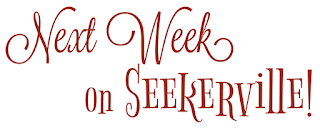
Monday: Jan is bringing a reprised edition of a popular "Back to Basics" post from a couple years ago - The Lingo of Storytelling. Stop by to refresh your memory and catch up with what's been happening in Jan's life.
Tuesday: Pepper
Wednesday: Cate will be talking about the writing lake. Curious? Stop on by!
Thursday: Pam

Pepper's release, Authentically, Izzy, is having some fun sightings in airports, bookshops, and Wal-marts across the country. Here is a photo from LaGuardia International.

Dana was excited to find her new book available in Erie, PA.
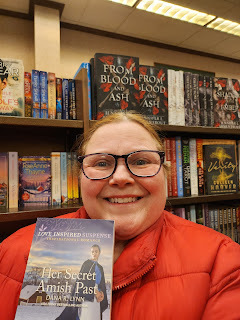

Disclaimer: Any blog post that includes an offer of product purchase or service is NOT to be considered an endorsement by Seekerville or any of our authors (please see our Legal page )
Hack Your Brain for Mor Energy and Focus in Writing by Kate Angelo at Learn How To Write A Novel
Ten Tips for New Writers by Cindy Sproles at The Write Conversation Desire, Goals, Motivations, and Needs in Storytelling by Stefen Emunds at Writer UnBoxed
How to Write a Book Review in 5 Easy Steps by Jackie Pearce at Write To Done
Bad Guys Who Need Jesus by Sara Davison at ACFW blog
The Business Skill I Wish I Could Grant All Writers by Jane Friedman
How to Write a Romance by KM Weiland at Helping Writers Become Authors
Plotting with Post-It Notes by Kay DiBianca at Killzone Blog
Can You Plagiarize Yourself? by Steve Laube at Steve Laube Agency
How to Find Your Readers by Jenna Harte at Fiction University
February 16, 2023
More Than 5 Senses

Hi everyone, Winnie Griggs here. Life has been hectic at my place the past few weeks so I hope you'll excuse me for reprising a blog I originally posted back in 2016. If it's not new to you hopefully you'll pick up a few tidbits from reading it again.

Today I thought I’d discuss adding depth to your stories by using the senses. I’m sure you’ve all heard, time and again, that one of the best ways to infuse your scenes with life and energy is through deft use of the five senses. In fact, if you type senses into the blog search box at the top of this page, it will display for you a number of very well written pieces on just that subject.
So I’m going to give just a quick nod to those basic five senses and then move on to something else.
Quick, before I list them here, how many of you can name all five of the basic senses from memory? They are, of course, Sight, hearing, smell, touch and taste (I always forget touch).
The key to using them effectively in your work is to make certain you don’t just add them in as a laundry list or afterthought. To be really effective you need to show how they color the emotions of your character, mood or setting. You need to see how they touch your character in order for them to touch your reader. Honing in on one or two really key elements in this way is much more effective than providing multiple sensory elements that just lay there.
For instance take this line:
As she walked through the park she could smell fresh cut grass, a cigar reminiscent of the ones her grandfather had smoked, and the loamy scent of newly-turned earth.
You’ve included the sense of smell here, which can be one of the most evocative of the senses, but you haven’t really given the reader anything to care about or latch on to.
Instead, focus in on the detail(s) that will elicit an emotional response and weave it in with the emphasis it deserves
Wafting over the everyday scents of the park that morning, the unexpected whiff of a cigar caressed her with memories of her beloved grandfather, ensconced in his recliner, puffing away, as she and her brother played at his feet. Oh, how she could use his wise counsel today.

That was just off the cuff, but hopefully you get the idea.
Let me give you a more extended example from one of my books, using one of the times when I included the five senses and think I actually got it right.
This excerpt comes from my book Handpicked Husband. The set-up here is that the hero and heroine have entered into a marriage of convenience. The day before the wedding, the hero learns something the heroine did that he feels is unforgivable but it is too late to call off the wedding. This is the evening after their wedding ceremony.
“I won’t lie,” Adam began. “I don’t think I’ll ever be able to forget what you did.”Reggie thought she’d braced herself for censure, but his words still had the power to lash at her.He leaned back. “However, I realize I’ve acted churlishly and for that I apologize.”She held herself still, her hands clasped in her lap. He’d apologized - that was something. “As you said,” Adam continued, “what happened in the past can’t be changed. It’s the present and future we need to concentrate on, and how to make them livable for the both of us.”She knew those words hadn’t come easily to him and that she should be grateful. He’d offered an olive branch of sorts, a sign of compromise from a man who thought compromise was a weakness. Expecting more from him would be unrealistic. The least she could do was meet him half way. “How do you suggest we do that?”“We made vows to each other in front of God and your neighbors,” he said. “It’s important that we be true to those.”“I never planned to do otherwise.”He gave a tight smile. “Then we’re agreed. It might take some effort, but in time it will likely become second nature for us to get along amenably.”Amenably. Now didn’t that just sound like the most romantic way to start off a new marriage? Reggie, stood, needing some activity, some distance from Adam. “You haven’t eaten anything tonight. Let me at least get you some cheese and bread.”Adam stood as well. “I could use a bite of something.”She unwrapped the block of cheese and reached for a knife while Adam took a clean cup from the drain board and uncorked the jug of cider.He stood beside her, so close their shoulders nearly touched. It rattled her for some reason, made her breath uneven. Did he feel anything at all?Reggie sliced into the cheese with more vigor than care, then jerked her finger up to her lips, wincing at the metallic tang of blood.Adam immediately set his cup down, concern furrowing his brow. “Let me see that.”She pulled her finger out of her mouth and shook her head. “It’s nothing. The knife slipped. I--”“Don’t argue.” He took her hand, examining the cut with a concerned frown.Reggie stared down at her hand in his. A tiny rivulet of blood seeped from the shallow cut, curling around her finger and onto his, like a narrow ribbon binding them together.Amazing that such large, work-callused hands could feel so warm and gentle without losing their sense of strength. “I’m sure it’s nothing serious,” she said. “It doesn’t even hurt.” Not a lie since all she could feel at this moment was his touch, his nearness.“Let’s clean it and get a better look, just in case.” Still holding her hand, he dipped a clean rag in the nearby bucket of water, then slowly squeezed it over her finger. Head bent, he gently dabbed at the remaining blood.Reggie stared down at his head, so close she could smell the scent of soap and cigar smoke and night air. So close her breath stirred his hair. So close she could press her lips to his temple without moving much at all.She pulled slightly back at that very inappropriate thought.His head came up, his gaze seeking hers. “Did I hurt you?” Not in any way I can explain. She shook her head, not trusting herself to speak. “Well then, I think you’re right. It’s not serious. The bleeding’s already stopped.” He let go of her hand. “You’re obviously tired. Go on to bed. I can fix my own meal.”“But--”“Don’t worry. I’ll clean up when I’m done.”Reggie nodded and turned away, realizing nothing much had changed. He was talking to her again, but he didn’t care to spend any more time in her company than he had to.
What do you think – did I pull you in? Did I give you an emotional connection to my heroine with those added touches of sight, sound, taste, touch and hearing?
So that’s the five senses we normally think of, and I’m sorry I wasn’t quite as brief as I’d planned to be J
What I really wanted to talk about today was the fact that there are other senses we can tap into and take advantage of when we write. Yes, there are more than five. In fact, some neurologists claim there are as many as twenty-one! I don’t plan to explore all of those today, you can google them if, like me, you find that kind of discussion fascinating. Instead I’m going to explore just the three additional senses that I think we writers can make the most use of.
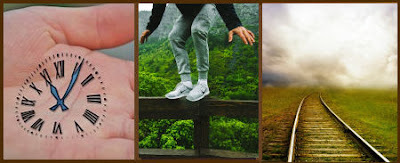
Sense of Time How we experience the passing of time, be it seconds or days, is a true sense. Writers use this all the time when we write phrases such as the days passed in a blur, time seemed to stand still, she fell down the slope in slow motion. In doing this we are attempting to pull the reader into our character’s head, have them experience the sense of time distortion with our character.
Here’s an example, from my book Handpicked HusbandThe scene unfolded with tortuous slowness. Each detail etched itself in her mind with gruesome vividness - the grim determination on Adam’s face, the bulging muscles in his arm as he strained to turn the tiller, the bone-jarring jolts his body absorbed as the runaway motor carriage careened out of control.
Then the motor carriage slammed into the photography wagon and time stampeded forward again.
Only when Ira’s hand released her did Reggie realize she’d been struggling to race forward. Now she picked up her skirts and dashed toward the splintered mess.
Please God, let him be all right.
Sense of Equilibrium This is what allows us to keep our balance. It also helps us to perceive gravity and the acceleration and directional changes of our bodies. When this sense isn’t working properly we get dizzy, disoriented and/or unusually clumsy. Often, when in the throes of some strong emotion – grief, exultation, passion – we’ll experience a temporary impairment of this sense. As a writer you’ll want to tap into this.
Here’s an example, again from my book Handpicked HusbandSomething inside him, some weight that had been there so long he’d ceased to feel it, began to crumble, then evaporate entirely. His world shifted from one heartbeat to the next, leaving him with a lost, dizzy feeling and he reached for the table to steady himself.
Sense of Space It’s how we perceive distances. And while this might, on the surface, seem to be fixed, we all have our own unique sense of space. A small vehicle might seem cramped to one person might feel comfortingly cocooning to another. We all have a different sense of our personal space so that when I (being southern) greet you with a hug, you may feel I’ve overstepped a boundary of sorts. And a stressful situation may make you feel like the walls are closing in or like we’re caught in a vacuum. Again, you want to use this sense to create an emotional experience your reader can relate to.
This example, taken from Second Chance Hero, weaves in both the senses of time and space.
For an agonizing heartbeat, as the wagon bore down on her daughter, time stopped. Verity felt every irregularity in the pebble that bit into her palm, could taste the tang of blood from where she’d bit the inside of her cheek when she fell, could see the dust motes hanging in the air before her.Please Jesus. Please Jesus. Please Jesus.She wasn’t sure whether she was uttering the frantic prayer aloud or if it was just shrieking through her thoughts.From somewhere a woman screamed, but all sounds, save for the wagon’s relentless rumbling progress, seemed to come from a great distance as her world shrunk to only the space between herself and Joy. How could mere feet comprise such a life-or-death distance? And still Joy didn’t move.Then, from out of nowhere, Mr. Cooper shot past her, and time sped up with a whoosh. He dove toward Joy, reaching her a heart-stopping split-second before the horse’s hooves would have trampled the child, and pushing her out of the way.Without remembering having moved, Verity was suddenly kneeling in the road with her weeping daughter clutched tightly against her. Her heart thudded painfully against her chest and her breath came in near-gasps. She’d come so close to losing her precious baby. She could still feel the stab of keening desolation that pierced her the moment she’d realized she couldn’t get to Joy in time, couldn’t cross those few feet that might as well have been a chasm. This time the prayer she sent up was one of thanksgiving.

So there you have it, three additional senses you can think about and weave into your work when you’re trying to layer in those emotional nuances that are so important.
What do you think? Do you consider Time, Equilibrium and Space true senses, and should they be added to your writing toolbox? What other senses do you play around with when you are adding layers to your work? And as a reader, do these kinds of details draw you in?Leave a comment to be entered in a drawing for a book of my choosing
February 14, 2023
Writing & the Mustard Seed
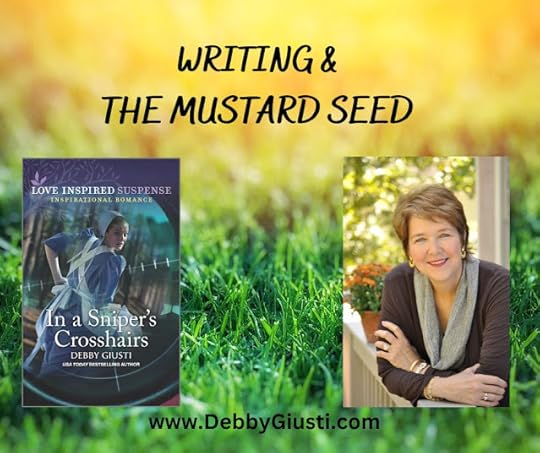 By Debby Giusti
By Debby GiustiThe Scripture reading for January 27 included the Parable of the Mustard Seed, which has always been a favorite of mine. I spent the next few days reflecting on the short passage and realized how it applied to my writing journey. I wanted to share a few of my thoughts and invite you to add your own insights on the following passage.
Jesus said,“To what shall we compare the Kingdom of God,
or what parable can we use for it?
It is like a mustard seed that, when it is sown in the ground,
is the smallest of all the seeds on the earth.
But once it is sown, it springs up and becomes the largest of plants
and puts forth large branches,
so that the birds of the sky can dwell in its shade.”
Mark 4:30-34
Christ walked along the shore of the Sea of Galilee and called his disciples to follow him and become fishers of men. As Christian writers, we’re following a similar call in that our stories reflect the Good News and spread the love of the Lord. Readers are sometimes uplifted and renewed in their faith when they read Christian fiction. Those who struggle with past mistakes may be able to forgive themselves or forgive others who have hurt them. When they are able to forgive, they are often able—at long last—to open their hearts to the Lord.
How did Christ call you to be one of His Christian writers?
My “call” from the Lord was like the parable of the tiny mustard seed. I published a few articles when my children were young, but as they grew, I put my writing on hold and spent my free time volunteering in my church and community as well as in the children’s schools. We were a military family and moved often. As the little ones grew and as we made our home in various areas around the United States and in Germany, I felt that tiny mustard seed start to grow. The Lord provided not coincedences, but God-incedences that slowly revealed the path He wanted me to walk. The year before we moved to Georgia, I started writing again, and when we moved to our present home, I found a vibrant writing community and others who were working toward publication. No doubt, the Lord knew it was time for that mustard seed to mature and blossom.
Looking back, writing had always been a desire of my heart. Sometimes we think those special dreams are of our own making. In reality, I believe the Lord plants those desires, like a mustard seed. He knows what will bring us joy and fulfillment. He knows our gifts and talents, and He instills in us those special dreams that will sprout into worthwhile endeavors that fulfill the desires of our hearts.
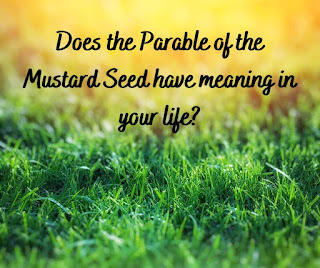
Has the Lord called you to be one of His writers? Share the story of your “call” and whether the Parable of the Mustard Seed has meaning in your life.
Happy Writing!
Wishing you abundant blessings,
Debby Giusti
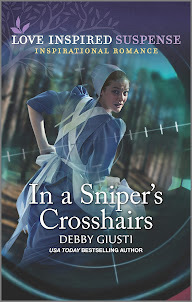
IN A SNIPER’S CROSSHAIRS
By Debby Giusti
An assassin’s loose in Amish country…and she’s not the only target.
When a radio broadcast describes taxi driver Lily Hudson’s passenger as an armed criminal, she becomes his immediate target. Narrowly escaping, Lily accepts Matthias Overholt’s offer to hide at his Amish family farm for Christmas—until evidence reveals the gunman’s plan is tied to Lily’s past. Now to prevent an assassination, Lily and Matthias must unravel a years-old conspiracy…and evade a sniper who has them in his sights.
Order HERE!
Do I Really Need an Agent?
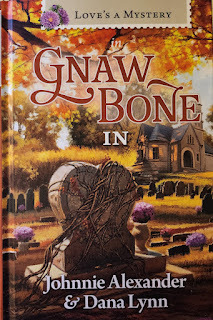 Remember I mentioned my Guidepost books? My first one is out now. Don't you love the cover? This series consists of stories in towns across America with interesting names. Each book has a historical story and a contemporary one, that are somehow connected. I was thrilled to work with my friend Johnnie Alexander on these stories. The idea of having stories set in the same town, in different times and connected by an object intrigued me. I have a copy of Love's a Mystery in Gnaw Bone IN that I will give to one commenter. Thanks for stopping by! Dana R. Lynn
Remember I mentioned my Guidepost books? My first one is out now. Don't you love the cover? This series consists of stories in towns across America with interesting names. Each book has a historical story and a contemporary one, that are somehow connected. I was thrilled to work with my friend Johnnie Alexander on these stories. The idea of having stories set in the same town, in different times and connected by an object intrigued me. I have a copy of Love's a Mystery in Gnaw Bone IN that I will give to one commenter. Thanks for stopping by! Dana R. Lynn

February 13, 2023
A Giveaway!
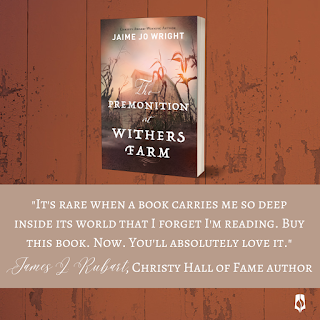
Good morning! I'm on a tight deadline, but what better thing for you than to have a chance to win a copy of my latest release! Just go here to enter by signing up for my newsletter!
Jaime
February 11, 2023
Sunday Scripture & Prayer Requests
 The Exhortation to the Apostles, by James Tissot, 1886-1894, Brooklyn Museum. {PD-US]
The Exhortation to the Apostles, by James Tissot, 1886-1894, Brooklyn Museum. {PD-US]
Jesus said to his disciples:
"I tell you, unless your righteousness surpasses
that of the scribes and Pharisees,
you will not enter the kingdom of heaven.
"You have heard that it was said to your ancestors,
You shall not kill; and whoever kills will be liable to judgment.
But I say to you,
whoever is angry with his brother
will be liable to judgment.
"You have heard that it was said,
You shall not commit adultery.
But I say to you,
everyone who looks at a woman with lust
has already committed adultery with her in his heart.
"Again you have heard that it was said to your ancestors,
Do not take a false oath,
but make good to the Lord all that you vow.
But I say to you, do not swear at all.
Let your 'Yes' mean 'Yes,' and your 'No' mean 'No.'
Anything more is from the evil one."
MT 5:20-22a, 27-28, 33-34a, 37
The Seekerville bloggers are praying for YOU and for our entire blog community. If you have any special intentions that need additional prayer coverage, leave a request for prayer in the comment section below.
Please pray for our country and for an end to the problems that plague us at this current time, such as the increased cost of fuel and food and the rise in crime.
Also, please join us in praying for the protection of our military and for law enforcement officers and border agents.We are so grateful for all of you—for your friendship and your support!
God bless you and keep you safe.
February 10, 2023
Weekend Edition


If you are not familiar with our giveaway rules, take a minute to read them here. It keeps us all happy! All winners should send their name, address, and phone number to claim prizes. Please send to Seekerville2@gmail.com. If the winner does not contact us within two weeks, another winner may be selected. **(All winners' emails will receive a response within a week. If you do not receive an acknowledgement, we may not have received it. Please leave a comment in the following Weekend Edition.)
Monday: Mary was here talking about a new release...and subplots. The winner of a signed copy of Forged in Love is Angeline
Tuesday: Cate roused the village to get the word out about Lisa Jordan's new Love Inspired release, Rescuing Her Ranch. Winning copies go to Sally Shupe, Sandy Smith and Abby H.
Wednesday: Ruthy shed wisdom on Planning, Plotting, Pantsing: What works? What doesn't?
On Friday: Carrie hosted Felicia Ferguson to get us thinking about How to “Go There” and Not Lose Your Readers: Writing Difficult Topics in Fiction.

Monday: Jaime Jo will be our hostess
Tuesday: Dana will be our hostess
Wednesday: Debby Giusti will provide a Scripture that applies to the writing journey.
Thursday: Winnie will be our hostess

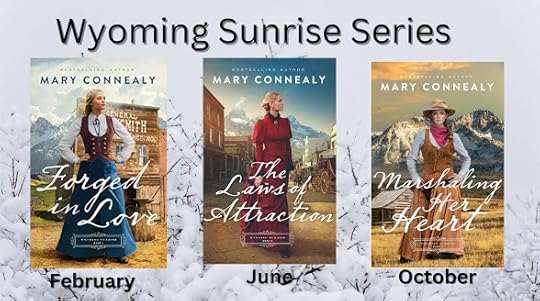 Cover Reveal for book #3 in the Wyoming Sunrise Series.Marshaling Her HeartComing in OctoberAvailable Now for Pre-order
Cover Reveal for book #3 in the Wyoming Sunrise Series.Marshaling Her HeartComing in OctoberAvailable Now for Pre-order
Disclaimer: Any blog post that includes an offer of product purchase or service is NOT to be considered an endorsement by Seekerville or any of our authors (please see our Legal page )
Genre Tips: How to Write Fantasy by KM Weiland at Helping Writers Become Authors
Move Along: Fixing Pacing Problems by Janice Hardy at Fiction University
How to Raise the Stakes in Your Story by Kristen Kieffer at Well-Storied
Using Talk-To-Text as a Writing Tool by Julie Lavender at The Write Conversation
How to Come Back to Your Writing Practice After You've been Called Away by Tracy Hahn-Burkett at Writer UnBoxed
Inkblots by Steve Hooley at Killzone blog
Dreaming With God - Does My Story Matter? by Kariss Lynch at Learn How To Write A Novel
Voices of Courage: Why Military Writers are Important by Dan Balow at Steve Laube agency
The Intersection of Premise and Protagonist by CS Lakin at Live Write Thrive
Creating Romantic Tension in Your Novel by Hannah Bauman at Between The Lines Editorial



